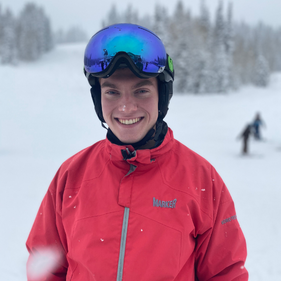I realized your identity and your culture will follow you, and in my case, Judaism followed me.

“Growing up in Seattle, I always felt it was kind of out-of-the-norm to be religious. I had very few friends who were actively religious or had faith-based beliefs. Utah is much more faith-oriented and accepting of religion. The Latter Day Saints have a huge presence here. It’s just tough because there are so few Jews in Utah, so there’s a lot of ignorance. People just don’t quite get [Judaism].
“I figured the accessibility to Judaism would be harder here in Utah. Hillel For Utah represents all of the universities and colleges in the state. We have members from the University of Utah, where I attend, and Westminster College, as well as the community college right in Salt Lake City, where most of our students come from.
“I knew coming here for college wasn’t going to stop me from being Jewish, but my practice has definitely changed. I emphasize culture rather than going to synagogue and praying. That kind of involvement has been really special. I’ve been involved in the Israel On Campus Coalition this year as a fellow. I do a lot of work around countering antisemitism and preventing BDS resolutions. Utah has fortunately not encountered too many [those resolutions], because there aren’t many Jews, but also, I think, because religion is so well accepted here.
“The beauty of our Hillel being so small is that we have a lot of latitude to come up with interesting events that fit the people who attend. We’ve always tried to do a lot of outdoor events, because a lot of people who come to Utah are interested in the outdoors.
“I was President of Hillel for Utah this past term during 2021. Usually, we have a springtime Shabbaton. However, due to COVID-19, we couldn’t do it, but we still wanted to plan a fun, weekend-long event. So instead we held a Sababa-Ton: a scavenger hunt in town, with Shabbat and Havdalah services, as well as an Israeli cooking event. It was a way to give students a great activity that brought people together.
“I came to college not expecting to be that Jewish. But, I realized your identity and your culture will follow you, and in my case, Judaism followed me. And no matter how I practice at any given time, I’m going to be Jewish and involved in Judaism. I don’t see that changing. It’s been interesting to meet people who practice many different kinds of Judaism. Or people who didn’t practice when they came to college and have started [to practice] since then. The takeaway, I guess, is that you can have whatever culture you really set your mind to, and people will accept you.” — Jacob Olson, University of Utah
As told to Gabriel Lesser, writer for the Hillel International Writers Program.